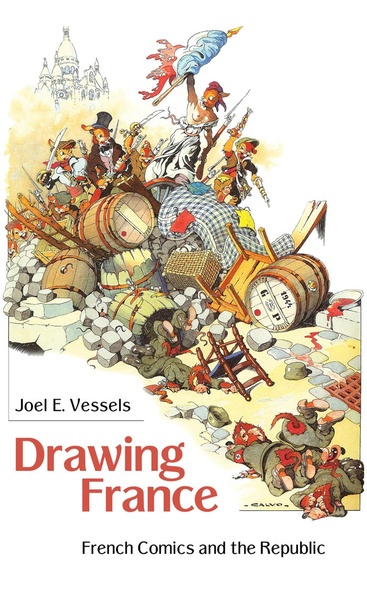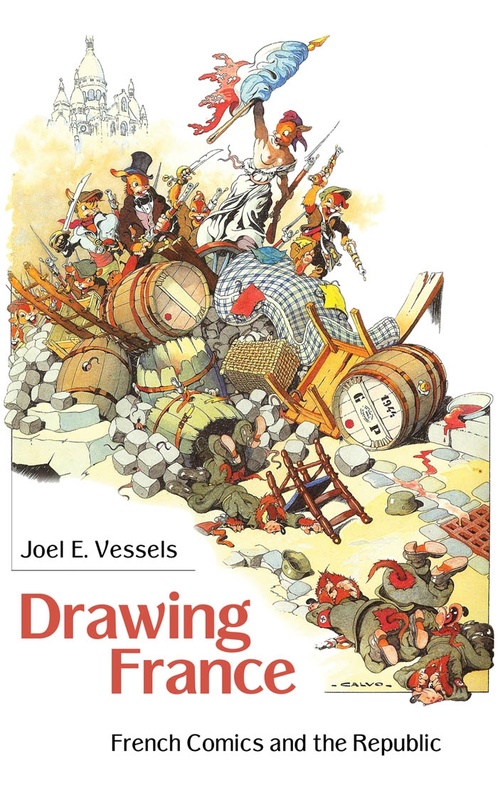
In France, Belgium, and other Francophone countries, comic strips—called bande dessinee or “BD” in French—have long been considered a major art form capable of addressing a host of contemporary issues. Among French-speaking intelligentsia, graphic narratives were deemed worthy of canonization and critical study decades before the academy and the press in the United States embraced comics.
The place that BD holds today, however, belies the contentious political route the art form has traveled. In Drawing France: French Comics and the Republic, author Joel E. Vessels examines the trek of BD from it being considered a fomenter of rebellion, to a medium suitable only for semi-literates, to an impediment to education, and most recently to an art capable of addressing social concerns in mainstream culture.
In the mid-1800s, alarmists feared political caricatures might incite the ire of an illiterate working class. To counter this notion, proponents yoked the art to a particular articulation of “Frenchness” based on literacy and reason. With the post-World War II economic upswing, French consumers saw BD as a way to navigate the changes brought by modernization. After bande dessinee came to be understood as a compass for the masses, the government, especially Francois Mitterand’s administration, brought comics increasingly into “official” culture. Vessels argues that BD are central to the formation of France’s self-image and a self-awareness of what it means to be French.
Joel E. Vessels is instructor of history at Nassau Community College. His work has appeared in International Journal of Comic Art and Contemporary French Civilization.





